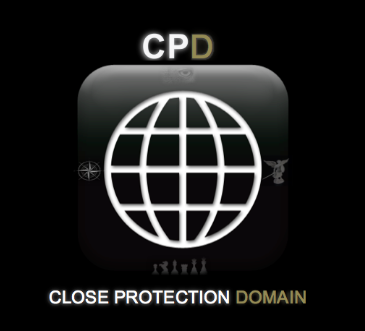ONLINE REPUTATION- Watch what you post out there! [FREE PDF]
Page 1 of 1
![ONLINE REPUTATION- Watch what you post out there! [FREE PDF] Empty](https://2img.net/i/empty.gif) ONLINE REPUTATION- Watch what you post out there! [FREE PDF]
ONLINE REPUTATION- Watch what you post out there! [FREE PDF]
An online reputation is the publicly held social evaluation of a person based on his or her behavior, what he or she posts, and what others (such as individuals, groups, and Web services) share about the person on the Internet.
The Internet constitutes a worldwide database, where information is archived and not easily deleted.
People, companies, and governments are increasingly using technologies such as social networking and video sharing, blogs, and search engines to create and share content with others around the world.
Whether it is for a job application, friendship, dating, or other purposes, when people want to learn about someone, they turn to this ever-growing pool of information. Online reputation, therefore, plays an important role in personal and professional life and has become a significant factor in making hiring decisions.
This report summarizes online reputation research commissioned by Microsoft. It was conducted by Cross-Tab between December 10 and 23, 2009, in France, Germany, the United Kingdom, and the United States.
Approximately 275 recruiters, human resources (HR) professionals, and hiring managers, and about 330 consumers interviewed in each country.
This study explores the attitudes of consumers, HR professionals, and recruiters on the subject of online reputation. In particular, it examines the impact of online reputation on hiring and how people manage their online reputation.
Highlights of the study’s findings include:
The recruiters and HR professionals surveyed are not only checking online sources to learn about potential candidates, but they also report that their companies have made online screening a formal requirement of the hiring process.
Of U.S. recruiters and HR professionals surveyed, 70% say they have rejected candidates based on information they found online. Though not as frequently, respondents from the U.K. and Germany report the same trend.
Recruiters and HR professionals surveyed report being very or somewhat concerned about the authenticity of the content they find.
In all countries, recruiters and HR professionals say they believe the use of online reputational information will significantly increase over the next five years.
Positive online reputations matter. Among U.S. recruiters and HR professionals surveyed, 85% say that positive online reputation influences their hiring decisions atleast to some extent. Nearly half say that a strong online reputation influences their decisions to a great extent.
Consumers surveyed have mixed opinions about the appropriateness of recruiters and HR professionals examining some types of online content. Most find it reasonable that recruiters and HR professionals check information on professional sites. There is greater concern, however, about recruiter scrutiny of photos, videos, and other personal content including blogs, personal social network pages, organizations they are affiliated with, financial information, and the like.
Consumers surveyed use a variety of methods to monitor and manage the information posted about them online. Most notably, they use multiple personas, search for information about themselves, adjust privacy settings, and refrain from posting content that they believe could damage their reputation.
Though most consumers surveyed do manage their reputation at least to some extent, there are a significant percentage of respondents (between 30% and 35% depending on nationality) who don’t feel their online reputation affects either their personal or professional life. Consequently, they are not taking steps to manage their reputations.
The whole report can be downloaded below.
The Internet constitutes a worldwide database, where information is archived and not easily deleted.
People, companies, and governments are increasingly using technologies such as social networking and video sharing, blogs, and search engines to create and share content with others around the world.
Whether it is for a job application, friendship, dating, or other purposes, when people want to learn about someone, they turn to this ever-growing pool of information. Online reputation, therefore, plays an important role in personal and professional life and has become a significant factor in making hiring decisions.
This report summarizes online reputation research commissioned by Microsoft. It was conducted by Cross-Tab between December 10 and 23, 2009, in France, Germany, the United Kingdom, and the United States.
Approximately 275 recruiters, human resources (HR) professionals, and hiring managers, and about 330 consumers interviewed in each country.
This study explores the attitudes of consumers, HR professionals, and recruiters on the subject of online reputation. In particular, it examines the impact of online reputation on hiring and how people manage their online reputation.
Highlights of the study’s findings include:
The recruiters and HR professionals surveyed are not only checking online sources to learn about potential candidates, but they also report that their companies have made online screening a formal requirement of the hiring process.
Of U.S. recruiters and HR professionals surveyed, 70% say they have rejected candidates based on information they found online. Though not as frequently, respondents from the U.K. and Germany report the same trend.
Recruiters and HR professionals surveyed report being very or somewhat concerned about the authenticity of the content they find.
In all countries, recruiters and HR professionals say they believe the use of online reputational information will significantly increase over the next five years.
Positive online reputations matter. Among U.S. recruiters and HR professionals surveyed, 85% say that positive online reputation influences their hiring decisions atleast to some extent. Nearly half say that a strong online reputation influences their decisions to a great extent.
Consumers surveyed have mixed opinions about the appropriateness of recruiters and HR professionals examining some types of online content. Most find it reasonable that recruiters and HR professionals check information on professional sites. There is greater concern, however, about recruiter scrutiny of photos, videos, and other personal content including blogs, personal social network pages, organizations they are affiliated with, financial information, and the like.
Consumers surveyed use a variety of methods to monitor and manage the information posted about them online. Most notably, they use multiple personas, search for information about themselves, adjust privacy settings, and refrain from posting content that they believe could damage their reputation.
Though most consumers surveyed do manage their reputation at least to some extent, there are a significant percentage of respondents (between 30% and 35% depending on nationality) who don’t feel their online reputation affects either their personal or professional life. Consequently, they are not taking steps to manage their reputations.
The whole report can be downloaded below.
- Attachments
 Similar topics
Similar topics» Learn Basic Hebrew Free - Online
» Private Ops Magazine – new issue! All yours, free to download, free to read!
» What is the best watch Strap?
» French movies & documentaries, what to watch?
» Vancancy: POST COMMANDER
» Private Ops Magazine – new issue! All yours, free to download, free to read!
» What is the best watch Strap?
» French movies & documentaries, what to watch?
» Vancancy: POST COMMANDER
Page 1 of 1
Permissions in this forum:
You cannot reply to topics in this forum
 Home
Home Register
Register Log in
Log in
![ONLINE REPUTATION- Watch what you post out there! [FREE PDF] Attachment](https://2img.net/i/fa/attachment.png)




» OSINT's books
» Hire Bodyguard in London
» Contact for work
» Updated CV
» Introduction
» Intersec 2017
» HLR/D-HLR Instructor Sweden
» CP SIA, MIRA Quaified